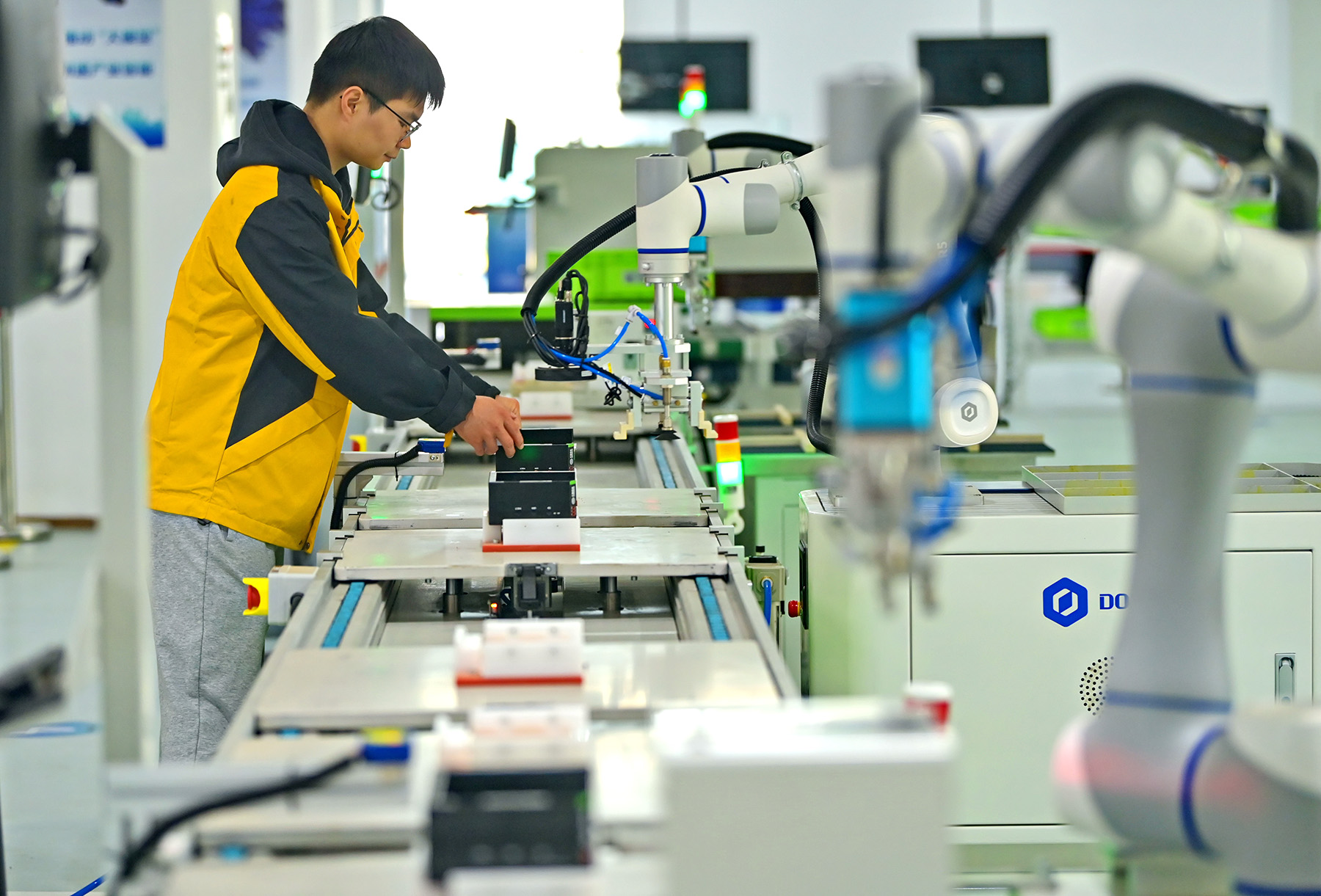Sluggish property sector, consumer confidence main drags during Q1

China's fixed-asset investment, a pivotal growth driver, grew at a faster-than-anticipated clip in the first quarter amid a big bet on manufacturing and high-tech sectors, thus getting the economy off to a solid start this year, analysts said on Tuesday.
The real estate sector, however, is still a major drag on China's economy as business and consumer confidence remain weak, they added, calling for more robust government support to help address falling sales and rising default risks facing property developers.
Fixed-asset investment, as shown by data released by the National Bureau of Statistics on Tuesday, grew 4.5 percent year-on-year in the first three months to over 10 trillion yuan ($1.38 trillion), above analysts' expectations, which had projected an increase ranging between 4.2 percent and 4.3 percent.
The accelerated growth rate in the first quarter was primarily supported by increased investments in infrastructure and manufacturing, which climbed by 6.5 percent and 9.9 percent year-on-year, respectively, said Wang Qing, chief macroeconomic analyst at Golden Credit Rating International.
As the weather warms up and projects resume after holidays, construction progress across various localities picked up pace, leading to a boost in infrastructure investment, Wang said, adding that the issuance of 1 trillion yuan in special treasury bonds at the end of last year has provided ample funds for various local infrastructure projects.
Meanwhile, the recovery in global demand, particularly in sectors such as electronics, automobiles and machinery, translated into increased orders and higher profits for manufacturers. As a result, investment in industry maintained a relatively high growth rate, Wang said.
In particular, the high-tech manufacturing sector witnessed a first-quarter investment growth rate of 10.8 percent, surpassing investment growth in overall manufacturing, according to the bureau.
The country's policy support fostering new quality productive forces and large-scale equipment upgrades has boosted businesses' demand for advanced computing technologies, digitization efforts and the adoption of cutting-edge office equipment, said Li Chao, chief economist at Zheshang Securities.
Going forward, banking and insurance institutions should enhance their medium- to long-term financial support for equipment upgrades and technological improvements, as outlined in a notice jointly issued on Tuesday by the National Financial Regulatory Administration, Ministry of Industry and Information Technology and National Development and Reform Commission. Efforts will be made to leverage the role of national production-financing platforms, to effectively align financial resources with the financing needs of industrial transformation. Moreover, the country will expand credit loans specifically tailored for strategic emerging industries such as artificial intelligence and aerospace, the notice said.
While other sectors are showing signs of growth, the sluggish performance of real estate investment raises concerns about implications for the overall economy.
Data from the NBS showed that investment in property development during the first three months dipped 9.5 percent year-on-year, with commercial housing sales plunging 27.6 percent.
Several top-tier cities in China, including Beijing and Shanghai — as well as some second-tier cities — have recently relaxed their property policies, leading to increased activity in the new home market, said Wang.
However, overall recovery of the real estate sector remains sluggish due to insufficient purchasing power on the demand side and persistently low industry expectations, Wang added.
China still has significant room for policy adjustments including allowing for the potential reduction of home purchase restrictions and the lowering of mortgage rates, Wang said.
Given the complex and challenging external environment and insufficient domestic effective demand, it is essential to maintain a certain level of intensity in infrastructure investment, said Wu Chaoming, deputy director of the Chasing International Economic Institute.


